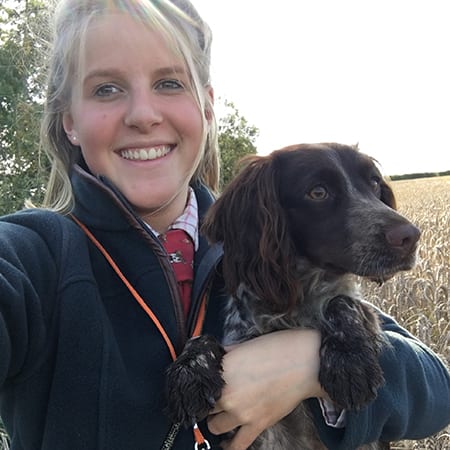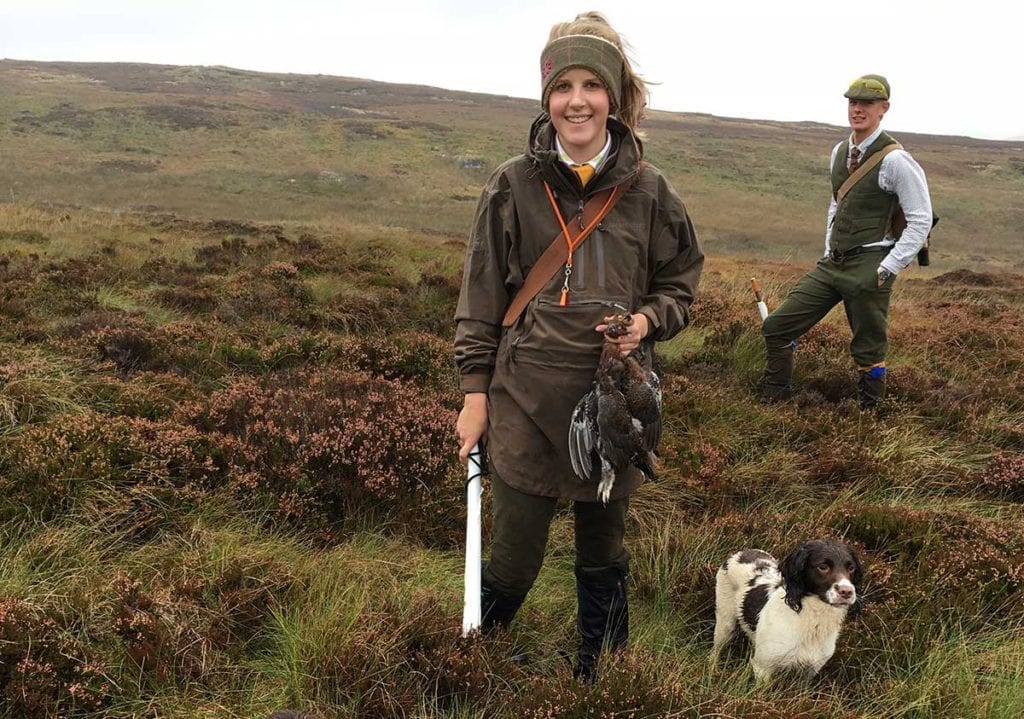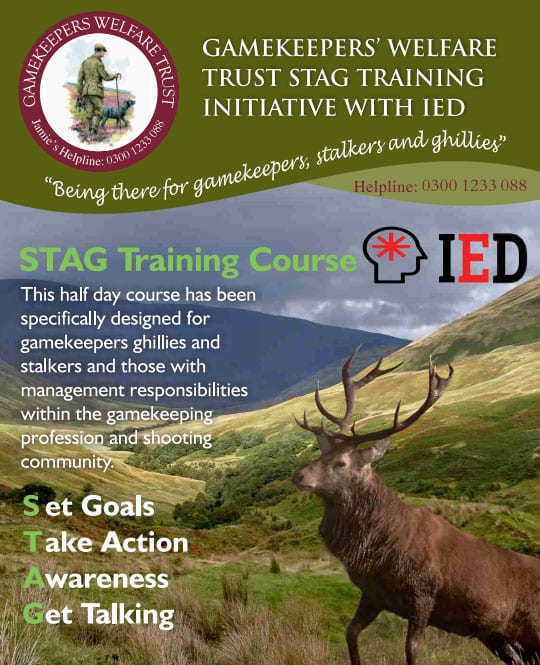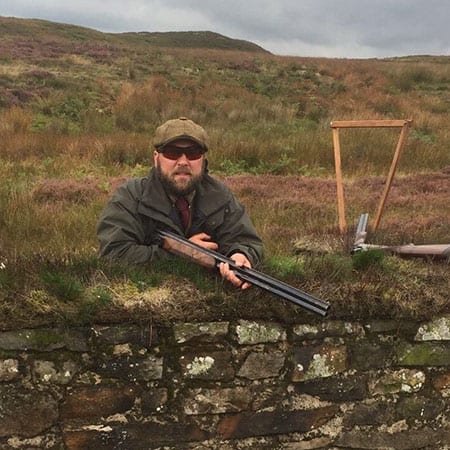
Lily Twigger
Gamekeeping graduate
Lily studied her level three Advanced Technical Diploma in Land and Wildlife Management at Newton Rigg College. Her passion for shooting and conservation came from her dad, who inspired her to pursue a career in gamekeeping.
Q: Why did you want to become a gamekeeper?
A: Since the age of six I have been passionate about the countryside and the wildlife around me. I grew up on a farm with livestock and a pheasant shoot. I would never miss a day’s beating with my cocker spaniel or lunch with the Guns in the shoot barn. I continued to feed my passion with shooting, standing with my dad on the peg when he was out.
I went to Newton Rigg College for two years to study land and wildlife management. I knew I wanted to become a gamekeeper as I wanted to have my say and to teach the younger generation. I became very interested in deer, grouse and partridge at college and on placement. I discovered new aspects of the industry which I had no idea about. I now live and breathe gamekeeping and the outdoors.
Q: Did anyone inspire you?
A: Before college the main influence was my dad. He taught me as much as he could. However at Newton Rigg my main influence was my lecturer Curtis Mossop (now BASC’s pathways to shooting officer), plus a few close relatives and family friends.
Q: What do you love about shooting and the land the most?
A: The time spent outdoors and the socialisation. I did a couple of work placements where I had to sit in an office and absolutely hated it.
On an estate or shoot you get to know the ground and the area well. You build respect and commitment for the land which is where the conservation part of the job comes into play.
The socialisation comes from shoot days, game days, game evenings, shows and any organised event. Most shoot days are filled with laughter, food, drinks and a good old chat. I always leave with a smile on my face, having gained a new friend and overall had a fab time.
Q: Do you think there is a future for gamekeepers and shooting?
A: That’s a huge question. Different areas of the industry are affected in various ways, targeted in different ways and are also managed and controlled in different ways.
I think the answer is yes, if we are careful and start to think more about what to do with the meat once it is shot, the need for huge game days, the posts we put on social media and the way the public see the industry.
Q: What would you say to encourage the next generation to think about gamekeeping as a career?
A: My answer would be that if you were brought up in the industry and are aware of what goes on you will be okay.
If you just want to get into shooting and you are a beginner it will 100 per cent be harder. You have to have your heart set on wanting to be a keeper as the money does not always pay for the work and hours you put in. The work is hard but rewarding.
Q: Do you have a memorable moment as a keeper?
A: I am not working as a keeper yet but I have been beating across many different shoots. At the start of this season I was out beating on grouse and partridge. It was a long, hard, wet, foggy day.
On the last partridge drive, the rain and fog started to clear and the Guns took their pegs and the beaters set off on the top of a Welsh valley. The birds flew off the top of the drive, the best partridge I had ever seen. We carried on beating until the horn went and a wave of clapping rolled up the hill to the beaters. The Guns were cheering and shouting: “Wow!” The drive was amazing; I will never forget it.
Another very memorable moment was graduating from college as the top gamekeeping student.

Q: Any redlisted or unusual wildlife on your shoot?
A: In Wales the wildlife is different or limited compared with what Scotland and England have. The deer numbers are a lot lower as are those of wading birds and game birds.
The habitat just does not support them the same. We do however have very high numbers of woodcock. Woodcock are a funny species. They are very quiet and swift with their movements so monitoring them is difficult. As they are so independent and don’t require any attention we do not see them as often as other game.
Q: Most essential piece of kit?
A: Apart from my electric fence tester which I take everywhere to stop me being zapped it would have to be my dogs or my clothing (waterproofs and boots). Without the dog the work would certainly be ten times harder and shoot days would basically fail.
Proper clothing is a must. Without it there isn’t much point in even starting a job. It’s what keeps us out on the hills, in the woods in the snow and rain.
Q: Have you been involved with the Gamekeepers Welfare Trust and if so, how did they help you?
A: At college I completed a GWT STAG training course. The course was really interesting and there was a lot of communicating involved which was different. Helen Benson from GWT came into college to talk about what the Trust can do for us but also what we could do to support it.
The Trust is amazing. I have had to use it once – a friend who was struggling with her mental health messaged me. I told her to ring the GWT; she did and they helped her to get everything sorted.


